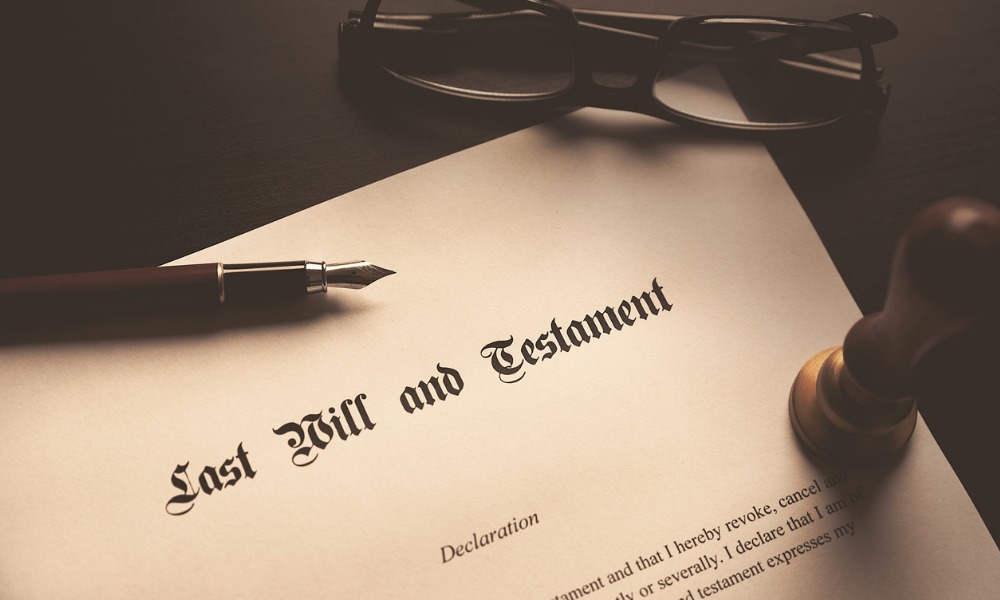It's a key part of an advisor's service offering but why should it be made a priority?

There are so many examples of people who have failed to prepare for their own passing that, on some level, it’s amazing it keeps happening. Of course, it’s fairly simple: no one really wants to think about the day they are no longer on this earth.
The most famous recent example – to go alongside Jimi Hendrix, Prince and Aretha Franklin – is Chadwick Boseman, who last year tragically died from cancer at just 42 without leaving a will. His wife had to file documents in probate court asking to be named an administrator of the actor’s estate.
Now, the reasons may have been deeply personal but, from an outside perspective, getting your affairs in order is vital for your legacy and often the financial future of loved ones.
What is estate planning?
According to Investopedia, estate planning is the “preparation of tasks that serve to manage an individual's asset base in the event of their incapacitation or death”. The planning includes the bequest of assets to heirs and the settlement of estate taxes.
This involves determining how an individual’s assets will be preserved, managed, and distributed and can include everything from making a will, setting up trusts and/or making charitable donations to limit estate taxes, to naming an executor and beneficiaries, and setting up funeral arrangements.
Why is it so important?
Ben Hopf, founder and CEO of Atticus, an estate settlement and inheritance platform, said many people simple struggle getting access to trusted advisors, who can explain the importance of the process. Atticus, for example, aims to democratize access to tools traditionally enjoyed by only the high-net-worth, bringing together the 17 professions involved in settling a loved one’s estate and directing them to the right people – including financial advisors – in the relevant jurisdiction in Canada and the U.S.
What are the risks if an estate plan is not made? Well, without a will, intestacy laws kick in and the government has a prescribed method for distributing the assets. Generally, if you’re married, it goes to the spouse and to the kids, if there are some. If not, then the assets go up to the parents and then over to brothers and sisters, and subsequently down to nieces, nephews, extenuating out to next of kin.
But things can quickly get complicated. Hopf said: “[Without a will], a lot of times it'll say things like ‘everything else divided equally among my heirs’. What gets really hard is when you don't have liquid assets. Dollars are easy to divide, but how do you divide the sentimental aspects? Your mom's jewellery or the wedding band across multiple daughters?
“You get all these conversations around who is actually going to get what and, unfortunately, it can create a lot of divide across surviving family members, unless it's very, very specified as to who gets what. Wills help avoid some of that.”
The role of an advisor
There are many reasons why estate planning should be a key part of an advisor’s service. Firstly, effective planning will help maximise the amount of money the family gets to keep after tax.
It also allows them to provide a more holistic offering, building relationships with the next generation of clients in the process. Purpose Advisor Solutions teamed up with estate planning platform Willful to assist clients in creating a will and collecting power of attorney documents online.
J-F Courville, managing partner at PAS, said: “The problem is, a lot of these things [like estate planning] in the traditional industry, are mysterious and hard to understand. They've been stuck in jargon and it's an interaction that's very transactional.
“Having partnerships, like the one with Willful, means you can demystify, explain in simple terms and create a really intuitive experience. The client also has a person they trust helping them navigate it all."
He added that when it comes to bringing estate planning into an advisors’ service offering, it makes it a lot easier for the advisor to fully understand a client's plan and their path of transition. Whether it’s beginning to open accounts or having conversations from that wholesome family view, it’s a good entry point to start thinking about how to bring on the next gen into the advisors’ life.
Courville said: “If the next generation, who may not be completely ready for an advisor yet, can actually start understanding what the elements of value are that an advisor can bring in through this guidance, like with a will or a conversation about investments, these will be useful at some point, and the next generation will be prepared.”



